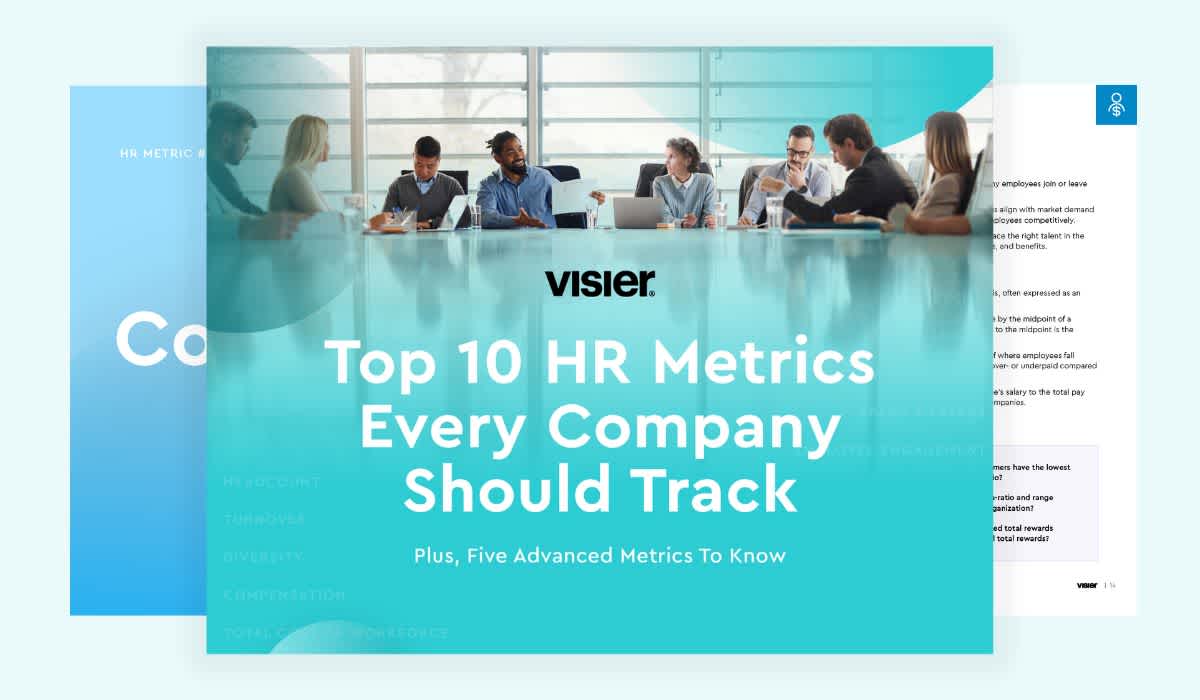Compensation Management: What It Is and Why It’s Important
Compensation management helps you plan salaries and bonuses so that your business remains competitive and your employees feel respected. Learn more.

Happy employees perform better. And compensation is one of the key factors of their happiness. Compensation management is a way of determining the appropriate pay for your employees. While it is not the only element of your talent management strategy, it is a critical one.
A compensation management plan goes beyond the salary. It needs to include benefits—both financial and non-financial ones.
HR professionals in charge of compensation management must also look beyond internal data. External factors such as the market pay range, demographics, and more come into play.
But why is compensation management important and how can you do it effectively? We’ll talk about all this and more.
What is compensation management?
Compensation management is the process of planning salaries, bonuses, and benefits so that the organization remains competitive and employees feel respected and appreciated. It is a critical component of talent management and employee retention that uses total compensation (salary plus non-monetary benefits) to attract new hires, improve employee satisfaction, drive better performance and, ultimately, reduce turnover.
Compensation should be a part of your talent management process. After all, it is an essential component of employee retention.
If you think a compensation management plan is only about the salary, think again. It includes direct compensation such as salaries, benefits, and commissions. But it can also include non-monetary incentives such as time off, meals, childcare, a phone, a laptop, and more.
To determine compensation, the HR department will usually follow a two-step process. First, they’ll need to look at internal factors. These include things like:
The company’s budget
The number of employees
The skill set of each employee and their position within the company
The next part of the process is analyzing external factors. These include:
Market survey results
What other competitors are paying for similar positions
The cost of living
Market drivers like supply and demand will also play a role in your compensation strategy. For instance, if a certain role requires skills that are hard to find, you’ll need to pay more to get the right person.

Why is compensation management important?
Compensation management directly ties in with employee motivation and performance. Employees who are fairly recognized and compensated for the value they bring to the organization, are more motivated to perform better. It can also play a significant role in HR’s strategies for talent acquisition, onboarding, and retention. And it can help you on your journey to ensure equal opportunities for all your employees.
For instance, you can see if there’s a gender wage gap, or if other inequalities based on things like ethnicity or race exist. Often, these inequalities go ignored or even unnoticed, although they can have a negative impact on your business.
Plus, by analyzing both internal and external factors when determining compensation, you’re ensuring your business is competitive. This will help you attract talent easily. You’ll be able to see the right opportunities for merit increases, bonuses, and more. This will ensure your best employees won’t leave with the first chance they get.
Compensation management can also help you spot instances of salary compression. This can happen when an employee has been in the same position for a long time, but their wage isn’t up-to-date with the market. Newer employees in the same position will have higher salaries. This leads to inequity and dissatisfaction, so it is something you’ll want to avoid.
Last but not least, compensation management can help you save money. For instance, your market analysis might show you’re paying much more than your competitors for a certain role. This will help guide you in your process of setting the salary ranges for future employees.
What are the 4 main types of compensation?
The main types of compensation are direct ones:
Hourly pay
Salary
Bonuses
Commission
Depending on your company, other indirect or non-monetary types may apply. Examples include offering a car, a laptop, or a phone, but also time off, access to courses, and more.
Let’s take a look at the main types of compensation and why they matter.
1. Hourly pay
Hourly pay can be used for:
Contract workers;
Unskilled or semi-skilled labor;
Part-time workers.
You may also use hourly pay in case of overtime. This is usually for cases when a full-time employee works outside the hours set in their contract.
The most common areas where you’ll see hourly pay are construction industries, retail, or hospitality. It is, however, not uncommon in other industries including tech and marketing in the case of contract or freelance workers.
Regardless of the type of work or the industry, you’ll need to ensure hourly payment doesn’t fall below the local minimum wage.
2. Salary
The most common form of compensation is salary. Full-time employees in most sectors will have a salary. When deciding the ranges, don’t forget to consider things like:
The local minimum wage;
What the average pay for the position is in your industry;
The required set of skills—those that are harder to find will require a bigger pay.
Salary doesn’t exclude other types of compensation including hourly pay, or benefits.
3. Bonuses
Companies can offer bonuses under various circumstances. For instance, when an employee hits a certain target prior to the deadline and they do a stellar job, a bonus is a great way to reward them for their efforts.
Organizations may also choose to reward the top performers quarterly or annually.
But bonuses don’t need to be dedicated to top performers alone. For example, if a business has a particularly good year, it may choose to offer bonuses to everyone in the company.
Plus, a bonus doesn’t need to consist only of money. You can offer a bonus in the form of more time off, or courses that will help employees learn and develop new skills.
Finally, tips are a type of bonus very common in the hospitality industry.
4. Commission
Commission is a type of compensation in sales, regardless of the industry. It can be the sole source of income or it can be added to the salary or hourly rate.
The compensation rate for commission can vary based on factors such as the profit margin, or the gross profit.

How can HR leaders do effective compensation management?
To create an effective compensation management strategy, you need to start by looking at a few decisive factors. Answer questions such as:
Do you compensate employees for stellar performances? If yes, how do you define a top performer?
What are your values and how can you reward those values?
Do you apply a different set of values for contract and part-time workers?
What are some non-monetized ways in which you want to compensate your employees?
How do compensation packages differ across sectors?
How can you ensure pay equity?
Choosing whether you’ll use compensation management software is also important. While such a product is not mandatory, it can make your life easier.
Another thing to consider is transparency. More and more people want to know how compensation is established. So think about how you can be more transparent in this process without giving away confidential data.
Once you answer the above questions and establish your goals, it’s time to move forward with creating an effective compensation management plan.
Start by determining pay ranges and grades. What will an entry-level employee earn? What about someone at the executive level? Having pay ranges from the start will help you on your journey to equity and transparency.
Next, make sure you’re compliant with legal requirements regarding payroll. Collaborate with the financial and legal departments if necessary.
Don’t forget to create adjustment protocols. These include information about bonuses, commissions, or promotions. You might also need adjustments due to external factors such as the cost of living. Develop the procedures to help you review compensation when necessary.
Finally, collaborate with upper management and board members. Your plan needs to be in line with the company’s goals and will need the approval of the executive board.
Key takeaways
Compensation management helps you determine the appropriate payment for your employees. It encompasses everything from salary, hourly pay, bonuses, and commission. It also includes indirect or non-monetized ways of remuneration such as paid time off, a car, a laptop, a phone, access to courses, and more.
A good compensation management plan will ensure pay equity and transparency. It will also be flexible and allow for adjustments when the need arises.
Finally, it will help you use your funds in a wise way, attract top talent by offering the correct compensation for each position, and stay competitive.
Compensation management FAQs
What is compensation management?
Compensation management is the process by which employers determine the appropriate amount of monetary and non-monetary compensation that their employees receive. It’s a critical component of talent acquisition, performance management, and employee retention.
What are the main components of compensation?
Compensation can be either monetary or non-monetary. Monetary compensation can include payment via hourly wage, salary, bonuses, or compensation. Non-monetary compensation includes benefits and perks like extra vacation time, laptops, phones, cars, travel expenses, professional development, and more.
Why is compensation management important?
Compensation management is important because it directly impacts employee motivation and performance. Fair compensation, and recognizing employees who go above and beyond with additional compensation motivates workers to perform better. Because of that, compensation management has a direct impact on the quality of people an organization hires, their performance while on the job, and the length of their tenure.



